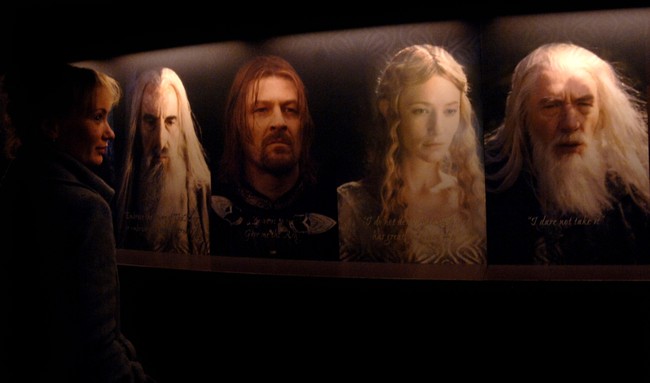Professor Tells Students “Lord of the Rings” Is Racist
“The Lord of the Rings” still ranks among the most admired fantasy epics, and its film adaptations set a high bar at the Oscars. The trilogy’s final movie, “Return of the King,” won eleven Academy Awards, including Best Picture and Best Director. That cultural weight makes attempts to recast the work politically worth noting.
J.R.R. Tolkien built Middle-earth with decades of drafts, notes, timelines and sketches that now sit in the archives at Marquette University in Milwaukee. He drew on his World War I experience when shaping the great struggle between good and evil, and his creative process is well documented. Fans study those manuscripts to understand his intentions, not to weaponize the texts.
Tolkien imagined evil in the form of Sauron, his servants, orcs and uruk-hai—creatures described as dark or green-skinned and set against the peoples of the West. Those descriptions have been treated as fantasy shorthand for villainy, not as a modern racial manifesto. Yet a University of Nottingham module argues otherwise, and that raises questions about where academic critique crosses into cultural erasure.
At Nottingham, a history module titled Decolonising Tolkien et al teaches students to read “Lord of the Rings” through the lens of ethnic chauvinism. The module is led by Dr Onyeka Nubia, who argues that eastern or darker-skinned peoples in Middle-earth—the Easterlings, Southrons and men of Harad—are depicted as inferior or villainous. That interpretation has triggered debate about intent, context and where critique becomes an attack on a beloved work.
A university is teaching students that JRR Tolkien demonises “people of colour” in the Lord of the Rings books.
Lord of the Rings ‘demonises people of colour’, students toldhttps://t.co/ch5esNptVM
— The Telegraph (@Telegraph) October 17, 2025
A history module called Decolonising Tolkien et al, taught at the University of Nottingham, uses a text that says orcs and other dark-skinned characters in the trilogy are the victims of “ethnic chauvinism”.
Dr Onyeka Nubia, a historian and writer who leads the module, argues that eastern races in the fictional realm of Middle Earth are depicted as evil while fairer-skinned peoples of the west are shown as virtuous.
In academia, “decolonising” usually means re-examining or moving away from white, western viewpoints.
In the module’s core text, Dr Onyeka writes that maligned peoples include Easterlings, Southrons and men from Harad. The trilogy also features the dark-skinned orcs, evil creatures that do the bidding of Sauron, known as the “Dark Lord”.
Critics on the right see this as an example of academic overreach: taking a creative work and forcing a contemporary ideological reading onto it. “Decolonising” becomes a one-way street when it targets Western literature while sparing non-Western cultural products from the same scrutiny. That selective attention feels partisan rather than scholarly.
Many who grew up with Tolkien view his characters as symbols and story devices rather than coded racial commentary. The Left, however, tends to treat every cultural artifact as a battleground for identity politics, which turns storytelling into a guilt exercise. That approach risks stripping art of nuance and historical context.
There is a broader pattern: whenever conservatives defend classic works, they are accused of missing systemic harms, while progressives insist on reinterpreting texts through modern grievances. The result is a polarized cultural academy that rewards ideological conformity more than intellectual curiosity. Students deserve exposure to different readings, but not the imposition of a single politicized narrative.
Attempts to recast “The Lord of the Rings” as inherently racist ignore Tolkien’s documented influences and his storytelling goals. Whether you adore the books or study them critically, there’s a difference between analysis and cultural demolition. Rewriting the intent of a creator to fit present-day politics does a disservice to learners and to literature.
Evil is inferior in its imagination. It borrows crude caricature because it lacks the creative energy to conceive complexity, and that is the true poverty of politicized readings. Art should invite debate, not be flattened into a checklist of contemporary offenses.
Editor’s Note: The Schumer Shutdown is here. Rather than put the American people first, Chuck Schumer and the radical Democrats forced a government shutdown for healthcare for illegals. They own this.






